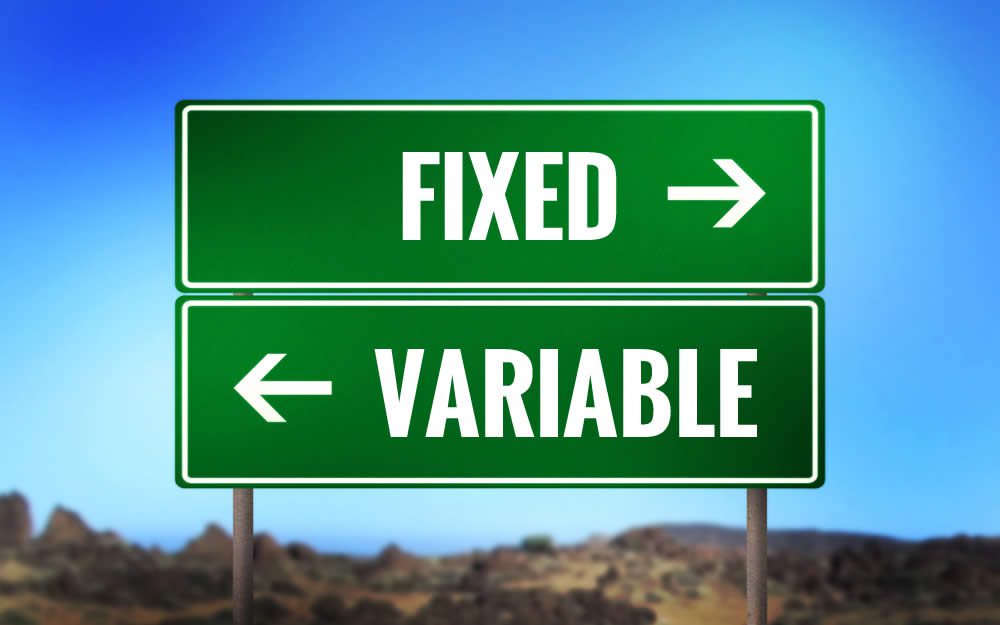When considering mortgages, it doesn’t take long before the entire process gets confusing, stressful, and exhausting. However, we don’t believe it should be this way which is why we are trying to make the industry more accessible. By providing you and many others with genuinely useful information, you will be in a better position to make good decisions before then passing knowledge on to friends and families. Today, we are addressing one of the biggest questions of them all; fixed or variable rates?
Fixed Rate Mortgage
Firstly, we have fixed rate and this means you will benefit from a short-term special rate. No matter how much the interest rates change during this period, you will still pay the same fee time and time again. Although the rates might not be fixed for the duration of the mortgage, some providers will allow you to renew the fixed term every couple of years. With other providers, the fixed period lasts for up to ten years.
Pros/Cons
Should you choose this option? As you can imagine, there are both pros and cons to each option and fixed rates mean you can plan your finances well in advance. Rather than risking it all on the rise and fall of the interest rate, you can secure a fixed mortgage payment and be safe in the knowledge it won’t ever rise.
On the flip side, the starting rates will typically be above that of the interest rate and the many variable products which means you will, on average, pay more over the course of the mortgage. Furthermore, you won’t benefit from a fall in the interest rates because you will still be stuck with the fixed rate. Ultimately, this product provides a balance between security and pricing; if you prefer the former, fixed rate mortgages could be for you.
Variable Rate Mortgage
On the other hand, we have variable rate mortgages and these will move with interest rates. When an economy is experiencing growth and inflation, governments will look to discourage spending by increasing interest rates. With this in mind, it is more rewarding to save and more expensive to borrow. Just to confuse the picture even more, there are different types of variable mortgage – standard variable rate, tracker, and discount rate – but we will be focusing on the idea as a whole here today.
Pros/Cons
Starting with the benefits, variable rate mortgages are perfect in times where interest rates are low and falling because you will continue to pay less and less as time goes on. Furthermore, the rates will start at a more respectable level than fixed rate mortgages and this is because the providers know there is every chance the interest rates will increase multiple times during your mortgage to replace any lost income.
On the down side, you will not have the same level of security with a variable rate mortgage which leaves you vulnerable to changes within the economy. With a sustained period of high interest, you will pay more over time and the decision not to choose a fixed mortgage will look like a poor one.
Conclusion
As you can see, there is an element of gambling and taking a risk with this decision which is why we offer our services at Leon Turkin & Team. With us, you will find the best rates from banks and private investors; all the while, we can discover whether a variable or fixed rate suits you best. With pros and cons to each, it all comes down to your willingness to risk or your comfort in security!



